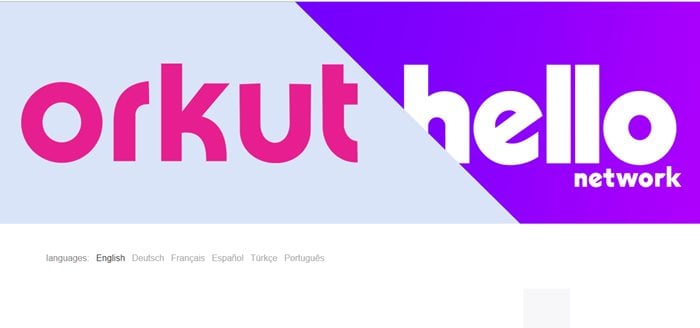For many of us around the world – and especially in India and Brazil – Orkut was the introduction to social networking in the early 2000s. Developed by Google employee Orkut Buyukkokten in 2004, Orkut.com at its peak saw 300 million active users on the platform, until it was supplanted by Facebook, and eventually shut down in 2014. Hello Network is Orkut Buyukkokten’s fourth social media venture, and was launched in May 2016 as an app-only platform, with the goal of creating an offbeat social platform where users could explore bonds and friendships with other people. Orkut Buyukkokten at the public launch of Hello in India this week to get some insights on the rollout of his latest project in the country.
“We initially had a plan of getting 100 beta testers on-board for launch in India, but we ended up with 35,000,” said Buyukkokten. “During the beta testing phase, we found out that the Indian audience is more open and welcoming when compared with North American markets like the US. When I look at how the beta testers were using the app, they are not afraid of reaching out to strangers and making friends; they are not afraid of expressing themselves in front of others and on the public platform.”
Read More: How to use two WhatsApp on the same Android phone
Orkut.com, he said, once topped the traffic charts in India with more unique visitors than Google.com. But that was more than a decade ago.
“When Orkut.com first launched, it wasn’t built to support hundreds of millions of users,” said Buyukkokten. “So, right after we launched, we ran into certain scalability issues. It took us almost a year to rewrite our infrastructure, architecture so we could handle the traffic.” Hello, he added, has been designed keeping in mind all these limitations and is made to support millions of users. “Hello is a mobile-first network. Being mobile means being instant – at your fingertips,” said Buyukkokten. “In terms of infrastructure, a lot has changed since the era of Orkut. We have services like AWS (Amazon Web Services) and Google Cloud that allow platforms to scale to not just hundreds of thousands, but millions of users.”
And right now, Hello is looking to make its money not through targeted advertising, but rather, in-app spending. “We have a custom virtual currency revenue model. We have something called Hello Coins that users on the platform can use to unlock certain features,” said Buyukkokten. For instance, users can spend their Hello Coins to post anonymously on Hello, which is essentially meant to be a public platform. “By requiring people to use virtual currency to create these ‘Incognito posts’, we ensure that people aren’t doing it too often. It kind of creates a balance between public and private updates,” he added. Buyukkokten is also not completely opposed of advertisements on his platform either. “Later on, we will introduce ads; but when we introduce ads it will be in a way that is beneficial for the users, giving them a positive experience.”
Users can buy 200 Hello Coins for a price of about $1, or roughly Rs. 65, and you can earn coins by using the network. Coins are also used for things like creating communities. The relatively low price might lead to the increased usage of Hello for anonymous posts, something the founder would not want as he aims to create a “positive” network. With anonymity there often arises enemity and hatred, as we have seen on platforms like Secret.
The Hello Network app is a bit different from other social networks out there. During the sign up process, it asks you to choose five different tastes and preferences – called personas – out of more than a hundred. It then helps you match with other people that have similar tastes. Algorithms used by Hello help create clusters of users with similar tastes and help the platform categorise individuals in an organised manner.
“In our lives, we like things to be customised. If you go to the same coffee shop every time, you expect the barista to know your preferences; if you browse your Netflix, you expect it to offer you perfectly customised recommendations,” said Buyukkokten. “Similarly, recommendations on social media are good as long as they give users a positive experience, and are not creepy.” Hello aims to keep preference questions to a minimum.

hello is the first social network built on loves, not likes. I designed hello to help you connect with people who share your passions.
hello connects us all. Think about it: you can say “hello” in any language and people will understand. “Hello” is probably the most widely spoken word in the world after “Okay.” Aló, halo, ʾāllo, alô, hallo, alló, hello. Fear and hatred have no place when you make such a simple and friendly gesture to someone else. So come join me, and make some new friends. Say hello, and love your world.
stay beautiful,

– Orkut

















